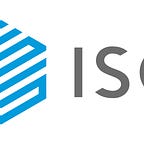How Austin Made a Name in Tech
It seems Austin tops a new list every single day: #1 Best Place to Live 2019, according to US News & World Report, #1 Best Job Market in America, according to the Wall Street Journal, and #1 Best Place to Start a Business, according to Inc 5000, just to name a few — and Austin has shown no signs of slowing down.
Silicon Hills continues to see massive growth year after year. Significantly lower cost of living has attracted San Francisco defects and up and coming entrepreneurs alike in recent years, leading to explosive growth in the tech industry and a fruitful job market. One of those San Francisco defects is flourishing survey software company, QuestionPro, which recently relocated from the Bay Area to enjoy the significant growth and top tier talent present in Silicon Hills. Dozens of companies have followed suit, or simply expanded into the Austin area, including rapidly growing startup Airtable, which opened an additional location in April of 2020. But an origin in Silicon Valley is not the only recipe for success. Austin-born startups like Dosh, Ontic, BigCommerce and countless others saw significant funding and tremendous growth. Even our very own ISG Partners opened an HQ2 in the heart of Austin in 2020.
But why Austin? Cities all over the US have been keen on luring companies, talent, and money out of San Francisco for years. To this end, top contender Tulsa, Oklahoma founded Tulsa Innovation Labs in 2020 to develop a strategy for bringing in big tech to the city, bolstering the job market, and making Tulsa a household name for innovation. And while cities like Tulsa have seen promising results, why can’t they catch up to Austin?
Part of the answer is easy: Austin got a head start. Officials in the Texas capital implemented a strategy similar to Tulsa’s in the form of the Austin Area Economic Development Foundation, founded in 1957 with a plan to make Austin a hub for industry giants. This strategy saw many developments over the next 6 decades, narrowing its focus to tech startups in the early 90s and enjoying an entrepreneurial influx ever since.
But while political and economic propellers earned Austin a strong foothold, the rest of the recipe is less simple to replicate. Art, fashion, and music have also flourished massively, with the SXSW Festival growing exponentially and featuring prominent names in music, film, and innovation yearly. Austin didn’t just top lists that would impress a CEO, the city also ranked #6 in the US for musicians per capita, #2 Best Cities for Millenials, and #4 Best City for Pets. These attributes, a booming job market, and a harder-to-define level of “cool” have made Austin into the tech scene it is, luring software company FileTrail, which announced plans to relocate the headquarters in 2020, and kept around Austin-based Pushnami, named the #1 Fastest Growing Company in Central Texas.
Austin has created an ultra-unique atmosphere, retaining the rich history and culture of Texas while simultaneously forging a brand all its own — and don’t expect them to stop any time soon.
